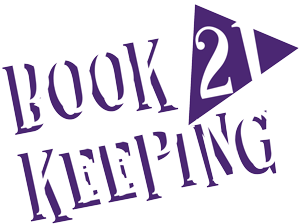More businesses fail because of poor money management more than any other consequence. As sad as it is, it’s almost a certainty. Why? Money management is not an innate skill, nor are we taught how to handle it either. In many families, there is usually no discussion on finances, almost a taboo subject. Eventually, with a lot of missteps along the way, we figure it out.
Those same money management mindset problems and bad habits that wreak havoc in our finances can curse our businesses. But if we are not aware of them – how can we avoid them?
Catching the Shiny Object Syndrome
You’ll find it hard to resist if your friends, colleagues, and your competition are all jumping on board! New tools, software, training, marketing, and even new cars can all have a strong influence, and if you aren’t watchful, these shiny objects will quickly derail you from meeting your current goals.
If you find yourself catching this syndrome frequently, try this two-step strategy instead:
- For “too good to refuse” offers, ask yourself how it will provide a positive ROI before you purchase. If the purchase can’t pay for itself, don’t buy it.
- For exciting new business ideas, create a “maybe” list. Create a “Business Ideas Brainstorming List” and add your new plan along with a basic outline, then get back to work. Creating one place is a great way not to lose those awesome ideas. You can look at all of them at a dedicated time. Sometimes, you can get even better plans when you combine two past ideas!
Tricked by the Sunk Costs Fallacy
If you ever said to yourself, “I’m not using this photo subscription, but I can’t give it up! I have all these picture credits in my account, and if I cancel, I’ll lose the credits!”, then you’ve been successfully hoodwinked by the sunk costs fallacy.
Economists make this mistake all the time. BehavioralEconomics.com defines it this way: “Individuals commit the sunk cost fallacy when they continue a behavior or endeavor as a result of previously invested resources (time, money or effort) (Arkes & Blumer, 1985)”. This behavior pushes us to drive hours through a blizzard, so we don’t waste a $20 concert ticket, over-eat a meal because we want to get our money’s worth, and to continue to pay for tools and resources we don’t use.
Take the time to review your current business expenses. What do you pay for month after month that you don’t use? Either make a plan to put those resources to work or cancel them. Stop being tricked by the sunk costs fallacy.
Pinching Too Many Pennies
You thought this was all going to be about reckless overspending, didn’t you? Here’s the tickler: Spending too little is just as bad for business.
When you continually lookout for free and low-cost tools or work 15-hour days because you “can’t afford to outsource,” you don’t do yourself any favors. You might think you’re bootstrapping and working hard to make something from scratch, but what you’re doing is digging yourself into a hole that will be nearly impossible to get out of. Furthermore, you’re reinforcing a scarcity mindset that will torment you for years if you let it.
Rather than just pinching pennies, create a plan for every dollar in your business. Decide when to buy what you need. Invest in high-caliber products and programs with a good ROI rather than opting for the low-ticket, half-baked schemes. Just like quality clothes and cars, quality services, and software last longer and work better. And unlike that car, good quality business tools will pay for themselves.
What can you do to start improving your money management?

